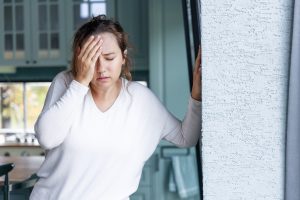 A stroke occurs when blood supply to part of the brain is blocked or reduced, or when there is bleeding in the brain. A stroke can result in brain damage, long-term disability, or death.
A stroke occurs when blood supply to part of the brain is blocked or reduced, or when there is bleeding in the brain. A stroke can result in brain damage, long-term disability, or death.
Data shows that people over the age of 55 have a higher risk of stroke than others. Although the risk of stroke increases with age, it is important to remember that it can happen to anyone. Younger people can have strokes too.
According to the American Heart Association, approximately 10-15% of strokes occur in adults aged 18-50 years, and the incidence of ischemic stroke (caused by a clot blocking blood flow to the brain) is rising in that group.
Several factors may increase the risk of stroke in younger adults. They are:
- Pregnancy
- Smoking
- Illicit drug use
- Binge drinking
- Taking birth control pills that include estrogen
- Sickle cell disease
- Blood clotting disorders
- Migraine with aura
- Diabetes
- Hypertension
- Patent foramen ovale
- Obesity
- Genetics
The risk of stroke can be reduced by receiving the appropriate care for certain diseases and health conditions, avoiding the use of illicit drugs, and making positive lifestyle changes such as eating healthy, exercising, quitting smoking, and minimizing alcohol consumption.
Having a stroke can have a serious impact on your health. This is why knowing the warning signs and receiving timely treatment is crucial. The acronym B.E.F.A.S.T (balance, eyes, face drooping, arm weakness, speech difficulty, time to call 911) can help you remember the warning signs of a stroke and respond quickly.
Jamaica Hospital Medical Center has been accredited as a Comprehensive Stroke Center (the highest designation of stroke care) by the Joint Commission. Whether you’ve survived a stroke or may be at risk of experiencing one, you can schedule an appointment for neuroendovascular screening, stroke rehabilitation, or any other form of stroke treatment that we provide. To schedule an appointment, please call 718-206-7001.
All content of this newsletter is intended for general information purposes only and is not intended or implied to be a substitute for professional medical advice, diagnosis or treatment. Please consult a medical professional before adopting any of the suggestions on this page. You must never disregard professional medical advice or delay seeking medical treatment based upon any content of this newsletter. PROMPTLY CONSULT YOUR PHYSICIAN OR CALL 911 IF YOU BELIEVE YOU HAVE A MEDICAL EMERGENCY.
